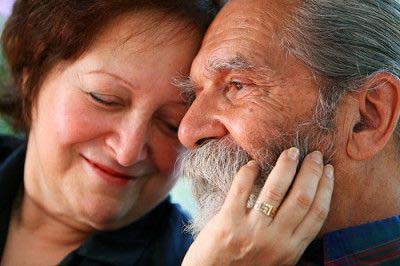4 Relationship Facts for Midlife Transition & Later On

In the midlife transition, and later on, relationships take on incredible importance to individuals, an importance that they retain throughout the second half of life.

As we journey through the second half of life the questions around what is fundamentally meaningful in life become more and more important, as do questions around truthfulness and authenticity. Nowhere are these concerns more powerfully alive for us than in the context of the deepest personal relationships — friends, lovers, mentors and family (where possible).
[hs_form id=”19″]
1. The Ever Present Realities of Personal Commitment
At every life stage we need relationships; if we are alive to them, they continually change us. As Prof. Aldo Carotenuto tells us,
“the encounter is continually being recreated… we feel we are pervaded by something new and something old: the new thing is the transformation underway and the old is nothing other than the rediscovered subjectivity in the relationship…. But here we come to the question of personal commitment…. The beloved has a reality as legitimate as my own, one which my desire must come to terms with.“
As legitimate as my own, that I must come to terms with… As I move through the second half of life, do I have the courage to let the other be who they are — and to let them in?
2. Relationships That Abide Through Transition
Moving through life transitions, and especially midlife transition, our awareness of who we are changes, as does our awareness of those with whom we are in intimate relationship. If we are honest, this means that our relationships face the challenge to either grow with our changed understanding of ourselves and perceptions — or else to face death. Death can come as the quiet drifting apart of two people, or the fiery end of long-standing connections.
Will our relationships truly abide midlife transition and later life? Or must we find new relationships that will?
3. Relationship Trauma
It is often an experience of shock and anxiety for an individual to come to the awareness that a key relationship upon which he or she has relied is not a secure and resilient.
This knowledge can come in the dramatic form of marital infidelity, various kinds of betrayal rooted in issues such as addictions, or in the awareness that the other no longer holds me as a person. This last can manifest itself in an awareness of studied rejection by the other, or in the form of a lack of curiosity about the other, and the ways that they differ from oneself — the person simply does not want to know about the differences.
4. At Home with the Other
The opposite of the above is a fundamental kind of welcome or hospitality for the other. An openness to both the mystery of who the person is, and who he or she may be becoming. You have to be gentle for that. And tough.

In midlife transition and beyond, /a-midlife-transition can open the way to finding soul in individual life and relationship.

Sue
So many people are hurrying through life without time to reflect upon the seasons they are passing through. Although life might be longer on average many are taking on the responsibility of grandchildren, working longer, or maybe stressing themselves about ensuring they maintain a certain standard of living, that they don’t give themselves time to smell the cut grass, see the setting sun or share a glass of wine with their partner or friends. Connectedness with others and with places needs time and opportunity. I agree with what you say but building resilience for those life traumas is best done together, when so many things are pulling people apart.
Brian C
Thanks for your comments, Sue. I agree that in this era, we can find it easy to live in a purely unconscious, reactive way, and that it’s essential to find ways to pull back from the anxieties and stressors, and to really do the hard soul work of finding our authentic selves and what is really meaningful for us in our individual lives. Certainly, genuine, authentic relationships can be of great importance to us in that work of individuation.
However, it’s essential to realize that inauthentic relationships, where the other person in the relationship is in bad faith, or where the other is unprepared to see us for who we really are, or even to allow us to be who we really are, can stand in the way of the individuation process. In fact relationships where there is infidelity may be a source of genuine trauma in the clinical sense.
It’s essential to either find authenticity in relationships, or else to move on, and find other relationships that allow us to both be and to explore who we most fundamentally are. Certainly, for some people, a key part of the individuation process will be to move beyond relationships in which they cannot be themselves.
Once again, thinks for your comment, Sue.